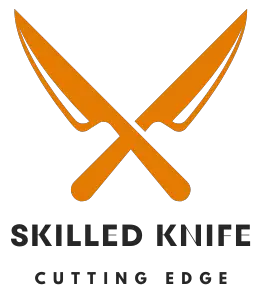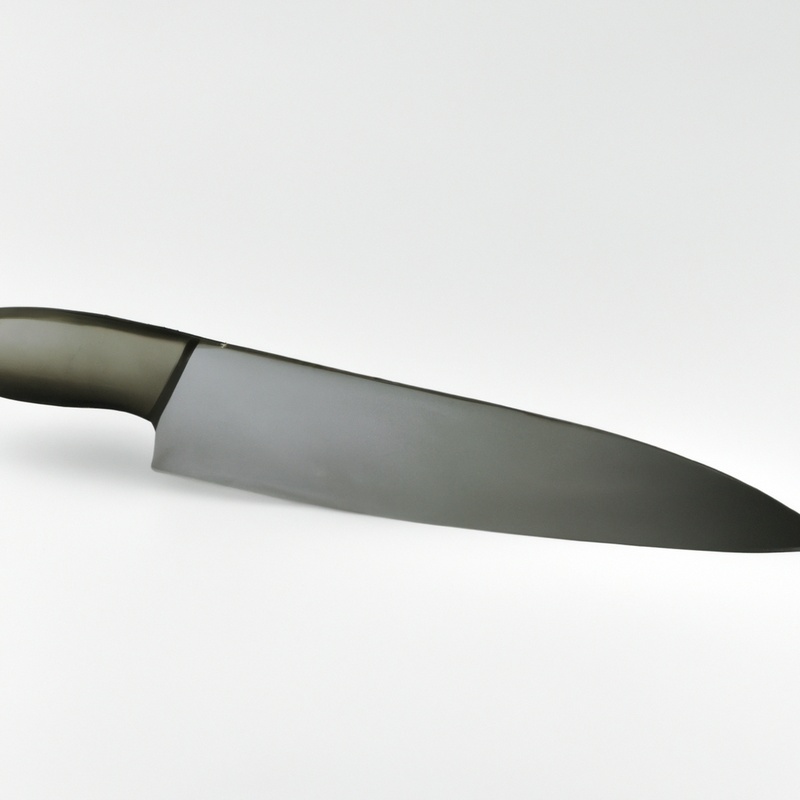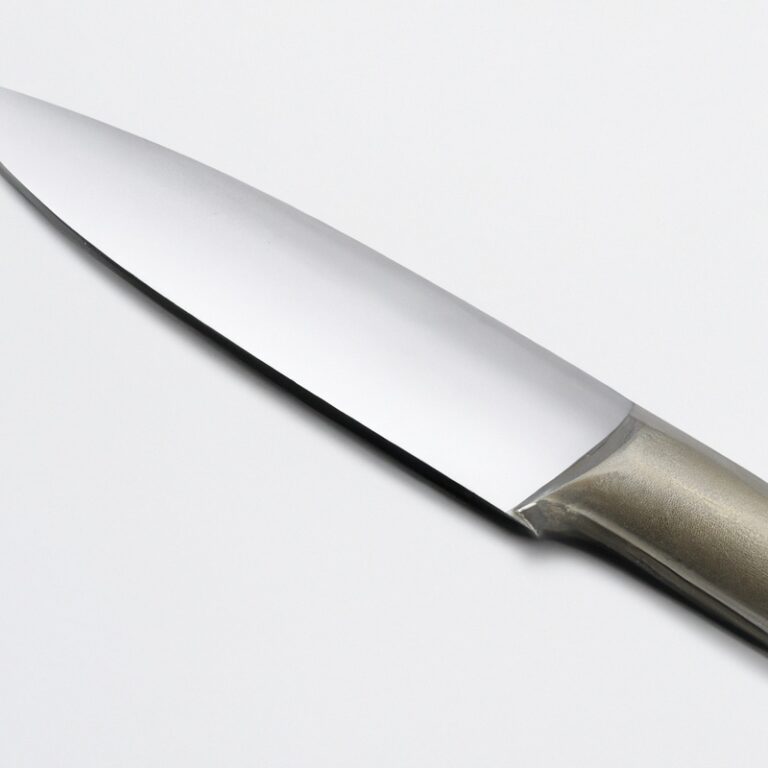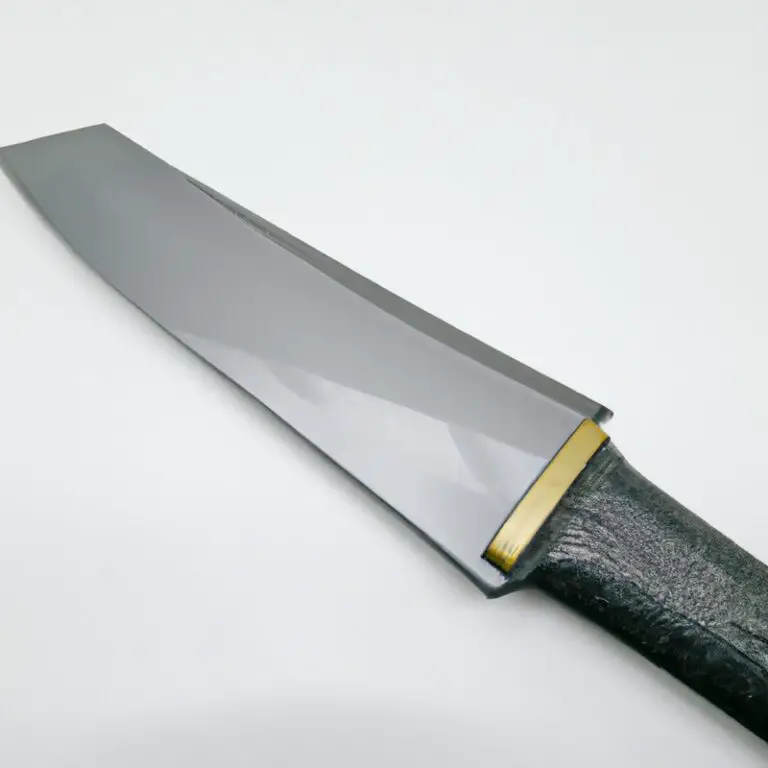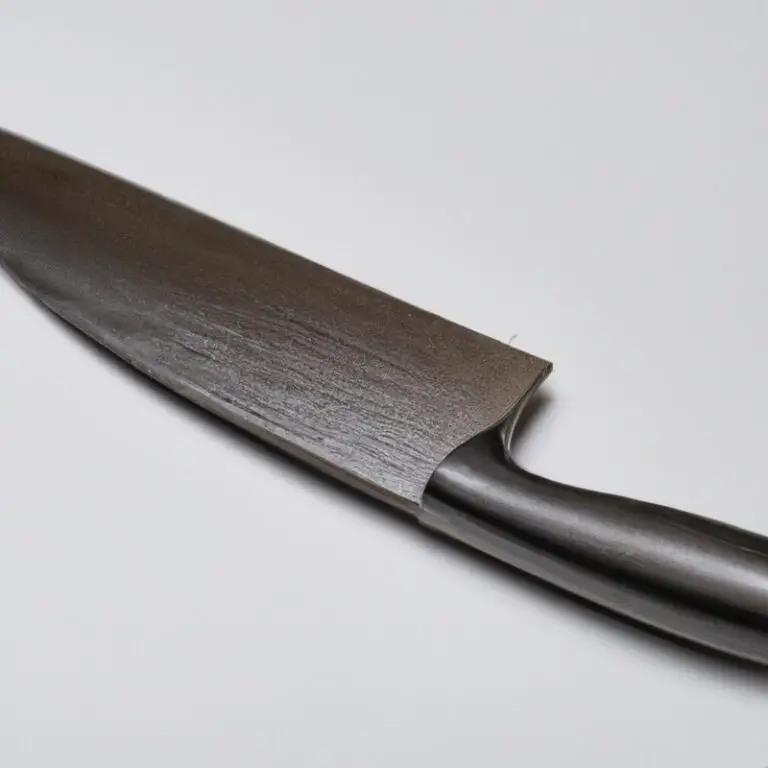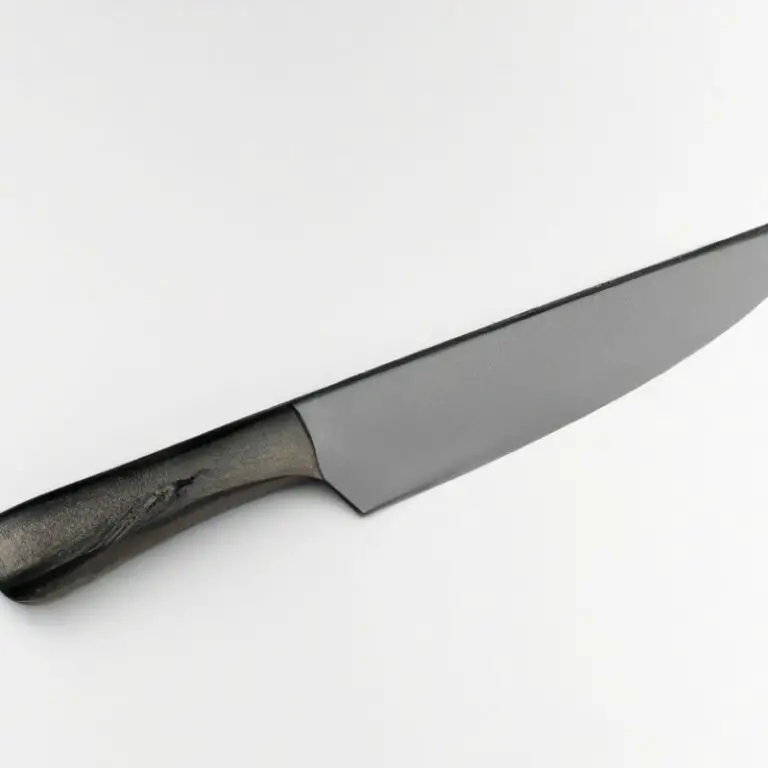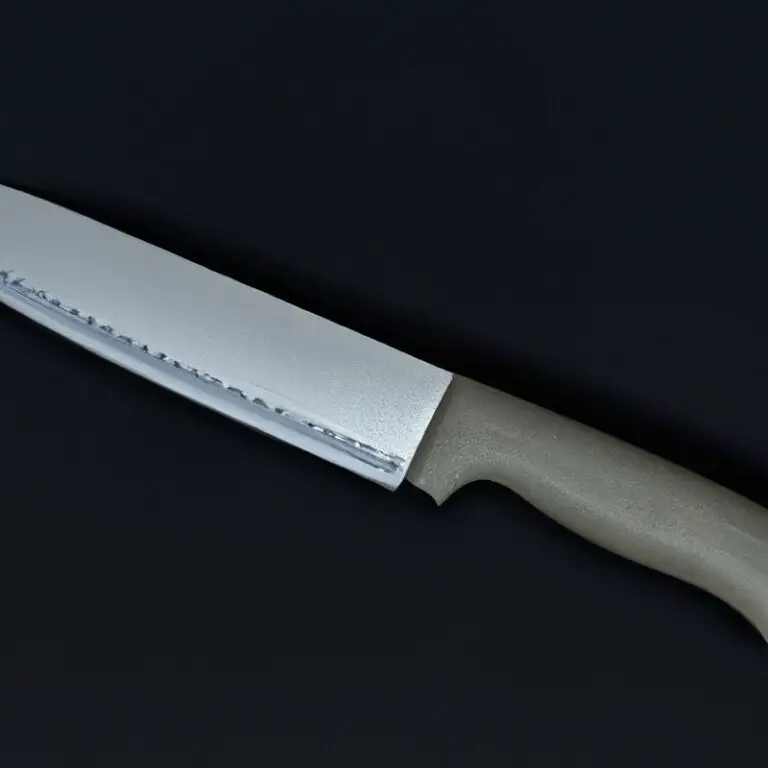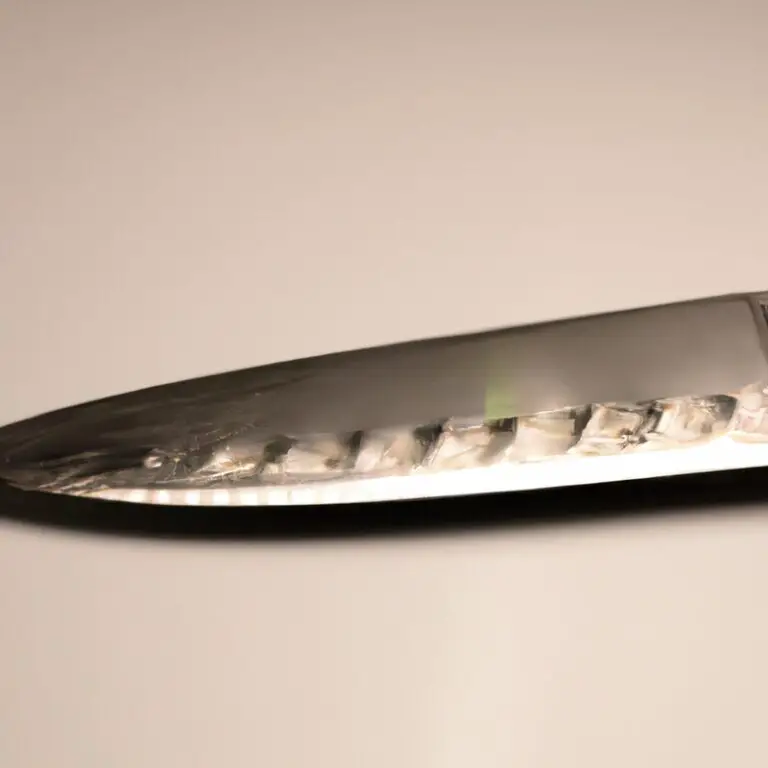What Are The Benefits Of Using a Glass Cutting Board With Gyuto Knives? Slice With Precision!
Key Takeaways:
- The use of a glass cutting board with Gyuto knives reduces the risk of bacterial contamination compared to other materials such as wood or plastic.
- Glass cutting boards are gentler on the blade of Gyuto knives, preventing dulling and chipping.
- The smooth surface of glass cutting boards allows for easier cleaning and maintenance, ensuring a longer lifespan for both the board and the knife.
- The transparency of glass cutting boards enables chefs to inspect their cutting technique, ensuring precision and accuracy in their cuts.
As a passionate home cook or professional chef, we know that you are always on the lookout for ways to take your kitchen skills to the next level. One often-overlooked tool that can dramatically improve your knife performance is a glass cutting board.
Especially if you are using a Gyuto knife, a Japanese chef’s knife renowned for its precision and sharpness, the benefits of using a glass cutting board are manifold.
From hygiene and food safety to knife maintenance and sharpening, there are many advantages to using a glass cutting board that every knife enthusiast should know about. In this article, we will explore all the reasons why you should consider switching to a glass cutting board for your Gyuto knives and how to make the most out of this innovative tool.
| Benefits | Description |
|---|---|
| Better for knife maintenance | Glass cutting boards do not dull knives as quickly as other types of boards. |
| Easy to clean | Glass cutting boards are non-porous, so they do not harbor bacteria or odors. |
| Durable | Glass cutting boards are sturdy and do not wear out quickly. |
| Showcases knife skills | Transparent glass allows for a clear view of cutting and slicing techniques. |
| Multipurpose | Glass cutting boards can be used for a variety of food preparation tasks, including slicing, chopping, and dicing. |
Glass cutting boards – Why are they a popular option for Gyuto knives?
Glass cutting boards are an increasingly popular option for using with Gyuto knives. This is primarily because of their hard, smooth surface that can withstand the sharpness of these knives.
Glass cutting boards do not dull the edges of the knives as much as wood or plastic boards, which can lead to better performance and longevity of the knives.
Additionally, glass cutting boards are easy to clean and maintain, making them a more hygienic option than other materials. Overall, using a glass cutting board with Gyuto knives can help achieve better precision, consistency, and presentation of your dishes.
Advantages of glass cutting boards for kitchen knives
Glass cutting boards offer several advantages for kitchen knives, specifically for Gyuto knives. Firstly, they are harder and more durable than other materials, which means they won’t damage or scratch the blades of your knives.
Secondly, glass boards are non-porous, which reduces the risk of bacteria and other harmful substances from being trapped in the surface.
Thirdly, they are easy to clean and sanitize, making them hygienic for food preparation. Lastly, because of their smooth surface, glass cutting boards offer less resistance when cutting, which makes it easier to slice through food without tearing or shredding it.
In summary, glass cutting boards are a great option for Gyuto knives because they are durable, hygienic, easy to clean, and enhance the performance of your knives.
How to use a glass cutting board for better knife performance
Using a glass cutting board properly can significantly improve the performance of your Gyuto knives. Here are some tips to help you get the most out of your glass cutting board:
- Place a damp towel under the glass board to prevent it from sliding around and to absorb any shock to protect your knives.
- Use a sharp knife to avoid dulling the blade on the hard surface of the glass cutting board.
- Cut straight down and avoid sideways or angled strokes to prevent chipping of the knife’s edge.
- Clean the glass cutting board thoroughly after use to ensure no residue is left behind that could dull your knives over time.
- Avoid chopping bone or other hard materials on the glass cutting board as it could damage the board and the knife.
By following these simple steps, you can ensure better knife performance and prolong the lifespan of both your knives and your glass cutting board.
Maintaining your Gyuto knives while using a glass cutting board
Maintaining your Gyuto knives while using a glass cutting board is essential to ensure their longevity and sharpness. Here are some tips for maintaining your Gyuto knives while using a glass cutting board:
- Always keep your knives clean and dry after each use to prevent rust and corrosion.
- Avoid chopping bones or frozen foods on your glass cutting board as it can dull your Gyuto knives.
- Use a honing rod or sharpening stone regularly to maintain the sharpness of your knives.
- Do not twist or bend your knives while cutting as it can damage the blade’s edge.
- Store your Gyuto knives separately in a knife block or sheath to prevent them from rubbing against other utensils.
By following these simple tips, you can ensure that your Gyuto knives and glass cutting board remain in good condition, and you can enjoy using them for years to come.
Are glass cutting boards better for hygiene and food safety?
Glass cutting boards are often touted as being better for hygiene and food safety compared to other materials like wood or plastic. This is because glass is non-porous, which means that it doesn’t absorb bacteria or other harmful microorganisms that can cause foodborne illnesses.
Additionally, glass cutting boards are easy to clean and sanitize, making them a great choice for those who want to ensure that their kitchen tools remain free of bacteria and other harmful agents.
However, it is important to note that glass cutting boards can be hard on knives, so it is important to choose a high-quality Gyuto knife that can withstand the wear and tear over time. Ultimately, if you prioritize hygiene and food safety in your kitchen, then a glass cutting board may be the best choice for you.
The science behind why glass cutting boards make a great option for knives
Glass cutting boards make a great option for knives because of their hardness and durability. Glass is less porous than wood, plastic, or bamboo cutting boards, allowing it to resist bacteria and stains.
This means that the knives stay sharper for a longer period of time.
Moreover, glass cutting boards have a smooth surface, which causes less friction when cutting, reducing the likelihood of micro-serrations on the blade’s edge. Unlike wood cutting boards, which can cause accelerated oxidation of the blade, the glass does not react with metal.
Finally, glass cutting boards are dishwasher safe and easy to disinfect, which makes them perfect for professional kitchens, as well as individuals who value hygiene and food safety.
Moreover, they look sleek and modern, which can add a pleasant touch to your kitchen décor.
Glass cutting board vs. wood cutting board for Gyuto knives – Which is better?
When it comes to choosing between a glass cutting board and a wood cutting board, there are various factors to consider. While both materials have their advantages and disadvantages, glass cutting boards are considered a better option for Gyuto knives.
Glass cutting boards are non-porous, which makes them easier to clean and prevents bacterial growth.
Additionally, they provide a consistent and flat surface, allowing for more precise cuts. Wood cutting boards, on the other hand, are softer and can cause more wear and tear to the blades of your Gyuto knives, leading to dullness over time.
Ultimately, the decision between a glass or wood cutting board for your Gyuto knives depends on personal preference and factors such as frequency of use and desired longevity of your knives.
Top considerations to look for when choosing a glass cutting board for your Gyuto knives
When choosing a glass cutting board for your Gyuto knives, there are several essential things to consider. These considerations include the thickness and quality of the glass, the size of the cutting board, and its surface texture.
Additionally, it is crucial to select a glass cutting board that is dishwasher safe and has non-slip pads to prevent accidents.
To maximize your Gyuto knife’s performance, it is also recommended to choose a cutting board with a non-porous surface for better hygiene. Finally, consider the cost and ease of maintenance before making a purchase.
By keeping these factors in mind, you can select the best glass cutting board for your Gyuto knives and ensure better performance and longevity.
Cleaning a glass cutting board to get the most of your Gyuto knives
To get the most out of your Gyuto knives when using a glass cutting board, it is important to clean it properly. Here are a few steps to follow:
- Rinse the cutting board with hot water immediately after use.
- Use a non-abrasive sponge or dishcloth to wipe the board clean.
- For tougher stains or odors, use a mixture of water and white vinegar or baking soda to scrub the board.
- Rinse the board again with hot water and dry it with a clean towel or allow it to air dry.
It is important to note that glass cutting boards are not dishwasher safe and should not be cleaned with abrasive materials like steel wool or scouring pads as they can scratch the surface, making it difficult to clean and damaging the knife’s edge. By following these simple steps, you can ensure that your glass cutting board remains in good condition and your Gyuto knives perform optimally.
Glass cutting boards and Gyuto knives – How to achieve the best results
To achieve the best results when using a glass cutting board with Gyuto knives, it’s important to follow a few tips. Firstly, place a non-slip mat underneath the glass cutting board to prevent it from sliding on the countertop.
Secondly, avoid using excessive force when cutting on the board to prevent damaging the knife’s blade.
Thirdly, always clean the board thoroughly after use to maintain hygiene and prevent cross-contamination. Finally, consider using a honing steel or sharpening stone regularly to maintain the sharpness of your Gyuto knife while using a glass cutting board.
By following these simple tips, you can ensure that you get the most out of your glass cutting board and Gyuto knife.
Glass cutting boards for Gyuto knives – Do’s and Don’ts
When using glass cutting boards with Gyuto knives, there are certain Do’s and Don’ts to keep in mind. Here are some helpful tips to ensure that you’re getting the most out of your glass cutting board without damaging your knives: Do’s:
- Use a clean and dry glass cutting board to prevent bacterial growth and maintain the knife’s sharpness.
- Use a non-slip mat or towel under the cutting board to prevent it from sliding while cutting.
- Clean the glass cutting board with a mild detergent and water after each use.
- Store your Gyuto knives separately from the glass cutting board to prevent the blades from touching each other.
- Use a sharp knife when cutting on glass cutting boards to prevent any extra pressure on the blade.
Don’ts:
- Don’t use a glass cutting board on a hard surface like granite or marble, as it could cause the board to crack.
- Don’t use a glass cutting board if it has chips or cracks, as it could damage your Gyuto knife.
- Don’t use abrasive cleaners or scouring pads on the glass cutting board as it could cause scratches on the board’s surface.
- Don’t cut frozen or hard products like bones or frozen meat on a glass cutting board as it could cause damage to the knife’s blade.
By following these simple rules, you can use your glass cutting board safely and effectively with your Gyuto knives while ensuring that your utensils last longer.
Improving your cutting skills with a glass cutting board for Gyuto knives
Using a glass cutting board for your Gyuto knives can improve your cutting skills significantly. Glass provides a smooth and hard surface, allowing the knife to glide smoothly without any resistance.
This feature enables the cook to have more control over the knife and apply a more consistent pressure, reducing the risk of damaging or slipping the blade.
Moreover, the transparency of the glass cutting board allows the user to see precisely where they are cutting, enabling them to make more accurate cuts. This feature is particularly helpful when preparing delicate ingredients or creating intricate cuts.
Overall, using a glass cutting board can help improve your cutting skills along with the longevity of your Gyuto knives.
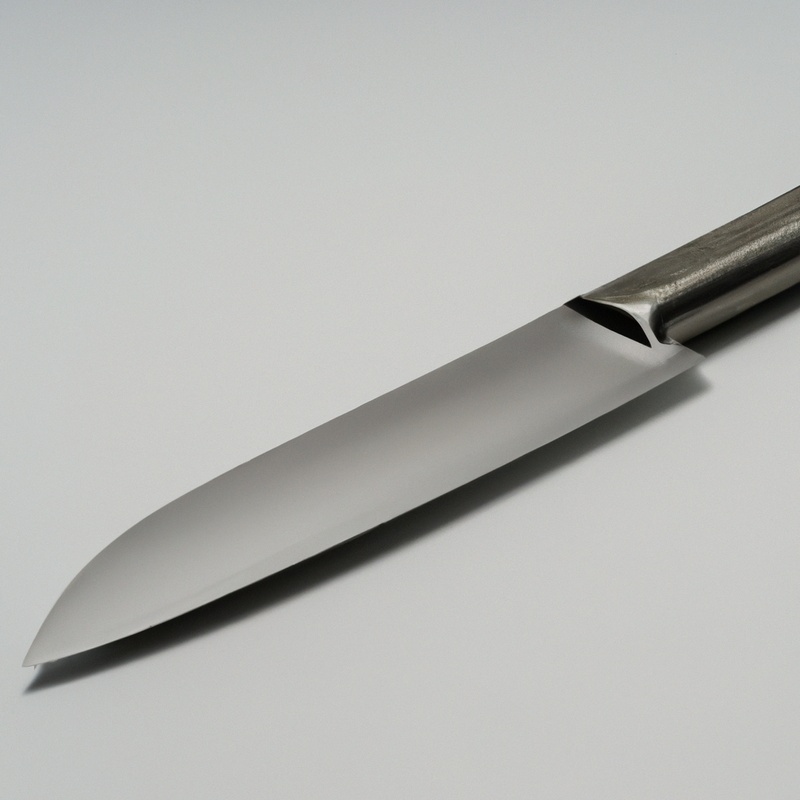
Glass cutting boards for Gyuto knives – Do they cause damage to your knives?
Glass cutting boards can cause damage to Gyuto knives over time. The hardness and rigidity of the glass can quickly dull and chip the blade’s edge, leading to decreased performance and a shorter lifespan for the knife.
Additionally, the hard surface of the glass can cause microscopic chips and deformations in the blade, which can further degrade the knife’s edge over time.
It is generally recommended to use softer materials like wood, bamboo, or plastic for cutting boards with Gyuto knives to reduce the risk of damage. However, if you choose to use a glass cutting board, take care to ensure that it is free of nicks, scratches, or defects that could further damage the knife.
Regular sharpening and maintenance are also crucial to preserve the edge of your Gyuto knife when using a glass cutting board.
Exploring the durability and longevity of glass cutting boards for Gyuto knives
Glass cutting boards are highly durable and long-lasting, especially for Gyuto knives. They are made of tempered glass, which can withstand heavy use and pressure from knives without developing deep grooves or cracks.
Due to their smooth surface, glass cutting boards are less likely to dull the blades of your Gyuto knives, as compared to wooden boards.
Moreover, they are resistant to stains, odors, and bacteria build-up, making them more hygienic for food preparation. With proper care and maintenance, glass cutting boards can last for many years, providing an excellent surface for cutting, chopping, and slicing with your Gyuto knives.
However, it is crucial to avoid dropping or hitting the board with sharp objects, as it can cause chipping or breakage.
Furthermore, you should always use knives with a fine, honed edge on a glass cutting board, as serrated or heavily ridged blades can create scratches on the board. Overall, a glass cutting board is a reliable, durable, and long-lasting option for your Gyuto knives, making it an exceptional investment for your kitchen.
How a glass cutting board can help maintain the sharpness of your Gyuto knives
Using a glass cutting board with your Gyuto knives can help maintain their sharpness. Glass cutting boards provide a smooth and firm surface for your knives to cut on.
Unlike wooden or plastic boards, glass does not have any give, which can cause your knives to become dull over time.
Additionally, glass cutting boards do not absorb any moisture from the food you cut, which can also cause your knives to dull. However, it is important to note that glass can be tough on knives, so be sure to use a high-quality Gyuto knife and avoid chopping or pounding on the board.
Can you create garnishes and decorative cuts with Gyuto knives on glass cutting boards?
Yes, you can create garnishes and decorative cuts with Gyuto knives on glass cutting boards. In fact, glass cutting boards are ideal for producing precise cuts, especially for decorative purposes.
The smooth surface of the glass allows for more control over the knife, resulting in clean and sharp cuts.
Additionally, the transparency of the glass cutting board allows you to see the underside of the food, which makes it easier to create garnishes and decorative cuts. However, it is important to note that glass cutting boards can be hard on your knives, so it is recommended to use a high-quality and durable Gyuto knife to avoid damage.
Using a glass cutting board for Gyuto knives – Tips from professional chefs
Professional chefs recommend using a glass cutting board for Gyuto knives as they provide a flat and even surface which doesn’t dull the blade. However, it is crucial to keep the glass clean and use it carefully to avoid damaging the knife’s edge.
Here are some tips from the experts:
- Place a kitchen towel or silicone mat under the glass board to prevent slipping and absorb shock.
- Wash the glass board thoroughly before and after each use to ensure food safety and hygiene.
- Avoid cutting hard materials, such as bones or frozen foods, on the glass board as they can cause cracks or chips.
- Don’t drop or hit the glass board with the knife as it can cause chipping and breakage.
- Use suitable Gyuto knives with a sharp edge and avoid excessive force to prevent any damage to the blade.
By following these tips, you can achieve the best results while using a glass cutting board with your Gyuto knives.
The versatility of glass cutting boards for prep with Gyuto knives
Glass cutting boards offer versatile uses when prepping with Gyuto knives. They are non-porous, which means they won’t absorb bacteria, odors, and stains from the food.
You can chop, slice, and dice any fruits, vegetables, meats or fishes on any part of the board surface without worrying about cross-contamination.
The even surface lets air circulate beneath the knife, minimizing drag. Glass Cutting boards are made to last and are resistant to scratches and wear and tear.
They are also easy to clean and maintain, and you don’t have to worry about chemicals and solvents damaging the board surface.
Glass cutting boards are ideal for precision tasks such as peeling, trimming or cutting intricate shapes, and decorative cutting techniques. They are versatile in their uses and can double up as a serving tray or a cheeseboard.
Overall, glass cutting boards are excellent investments for your Gyuto knife set, not just for their versatility but their durability, easy maintenance and versatility in the kitchen.
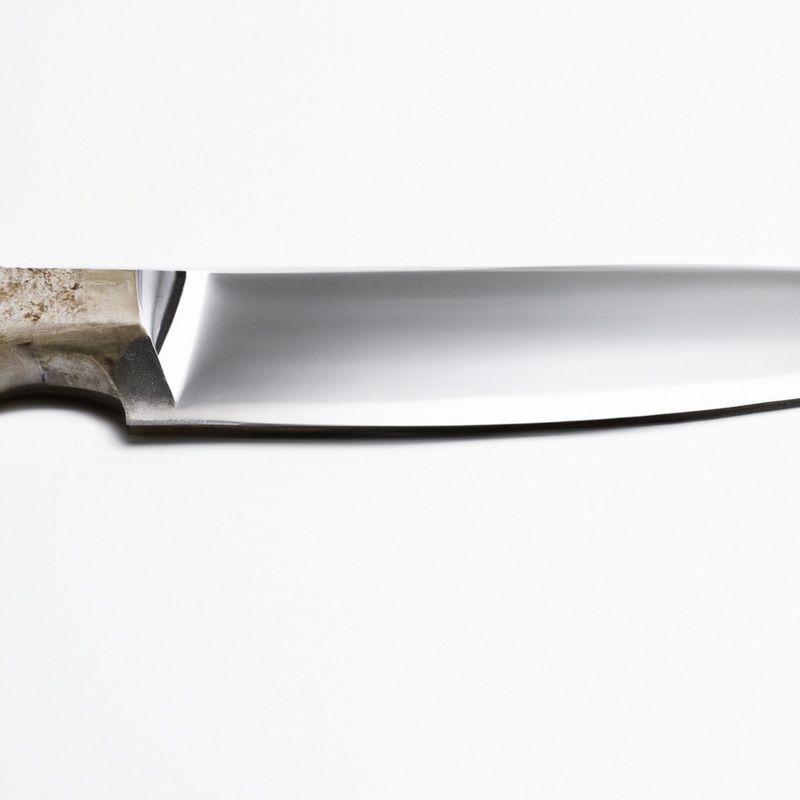
Does a glass cutting board give a better presentation of your dishes?
Glass cutting boards offer a unique advantage in terms of presentation when it comes to serving dishes. The clear and smooth surface gives a clean and polished look to your food, making it more appetizing and enticing for the eyes.
The transparent surface enables you to see through the board, showcasing the various colors and textures of your ingredients.
Additionally, unlike wooden cutting boards, glass boards do not leave behind any stains or odors, ensuring that your dishes look and smell fresh and pleasant. Whether you are serving raw vegetables, sushi, meats, or fruits, a glass cutting board can significantly enhance the visual appeal of your dishes and impress your guests.
Why a glass cutting board is an essential tool for your Gyuto knife collection
A glass cutting board is an essential tool for your Gyuto knife collection because it offers a hard and non-porous surface that won’t dull your knives. The smooth and flat surface of a glass cutting board ensures consistent cuts, which makes it perfect for precision cuts with a Gyuto knife.
Additionally, glass cutting boards are easy to maintain and are highly hygienic as they are non-porous, which means they won’t absorb bacteria or odor from food.
They are also great for presentation purposes as they offer a modern and elegant look to any dish. With a glass cutting board, you can protect your knives’ sharpness, maintain hygiene, and achieve better cutting results.
Final Verdict
Using a glass cutting board with Gyuto knives offers numerous benefits that cannot be overlooked. From the improved knife performance to better hygiene and food safety, it is clear that glass cutting boards are a popular option among chefs and cooking enthusiasts.
The science behind this choice is solid, and it provides a practical solution for maintaining the sharpness and durability of your knives.
Remember to consider the top considerations when choosing a glass cutting board for your Gyuto knives, and follow the do’s and don’ts to achieve the best results. As professional chefs recommend using a glass cutting board, it is clear that it is an essential tool for your Gyuto knife collection.
So, go ahead and invest in a high-quality glass cutting board today to take your culinary skills to the next level!
